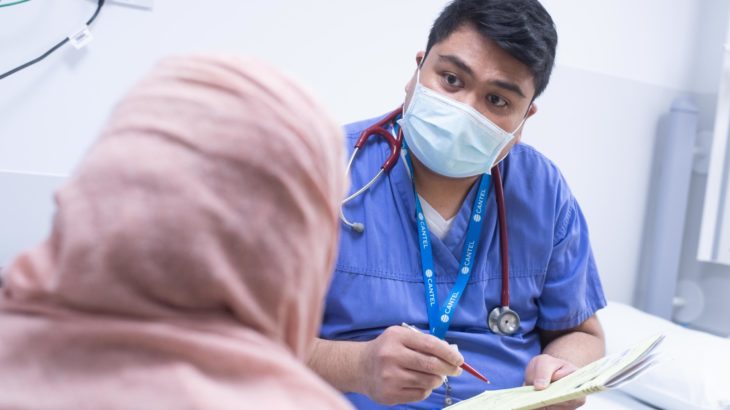Queen Mary’s genes project goes national

A project to improve the representation of British people with Pakistani and Bangladeshi heritage in genetic datasets has reached a milestone.
Some 50,000 research volunteers have signed up to the Genes & Health study led by Queen Mary University of London (QMUL), which aims to reverse health inequalities that have traditionally disadvantaged people from these communities.
The project, led by QMUL in partnership with King’s College London, started in east London in 2015 and has since expanded to Bradford and more recently Manchester. The study is now halfway towards achieving its goal of recruiting 100,000 volunteers by 2024.
Funding boost
The initiative benefits from £25m of investment by a group of life sciences companies to investigate how genes may help us understand health problems, develop new treatments and support the diversification of health research data.
British South Asian people have the highest rates of heart disease in the UK and are six times more likely to have Type 2 diabetes than the rest of the UK population.
British Bangladeshi and British Pakistani people have also had the worst COVID-19 outcomes in the UK. They have historically been under-represented in the large genetic data sets used by scientists, doctors, and policy-makers to guide decisions about healthcare.
Genes & Health is addressing this by recruiting volunteers from British Pakistani and British Bangladeshi heritage to improve the diversity of genetic data used for health research.
Going nationwide
The 50,000th volunteer, Zahid Chauhan OBE is the first recruit to the newly opened Manchester Genes & Health.
Dr Chauhan, a local GP and councillor in Manchester said: “British South Asians are underrepresented in research and have had terrible outcomes from the COVID pandemic. I am delighted to be the 50,000th volunteer for Genes & Health and the first for Manchester, bringing the research spotlight to health inequalities across England”
Dr Sarah Finer, consultant in diabetes and senior lecturer at QMUL said: “Genes & Health is doing what it said it would – bringing benefits to health deprived local communities. Our new scientific data and more volunteers will enable us to do even more to improve health in British Pakistani and British Bangladeshi communities as well as the wider UK population.”
The investment, from companies including GSK and Pfizer, will also contribute to ambitions to establish East London as a major centre of excellence in life sciences, as part of its partnership with Barts Health NHS Trust through Barts Life Sciences and King’s Health Partners.
You can read more about the project on QMUL’s website.

